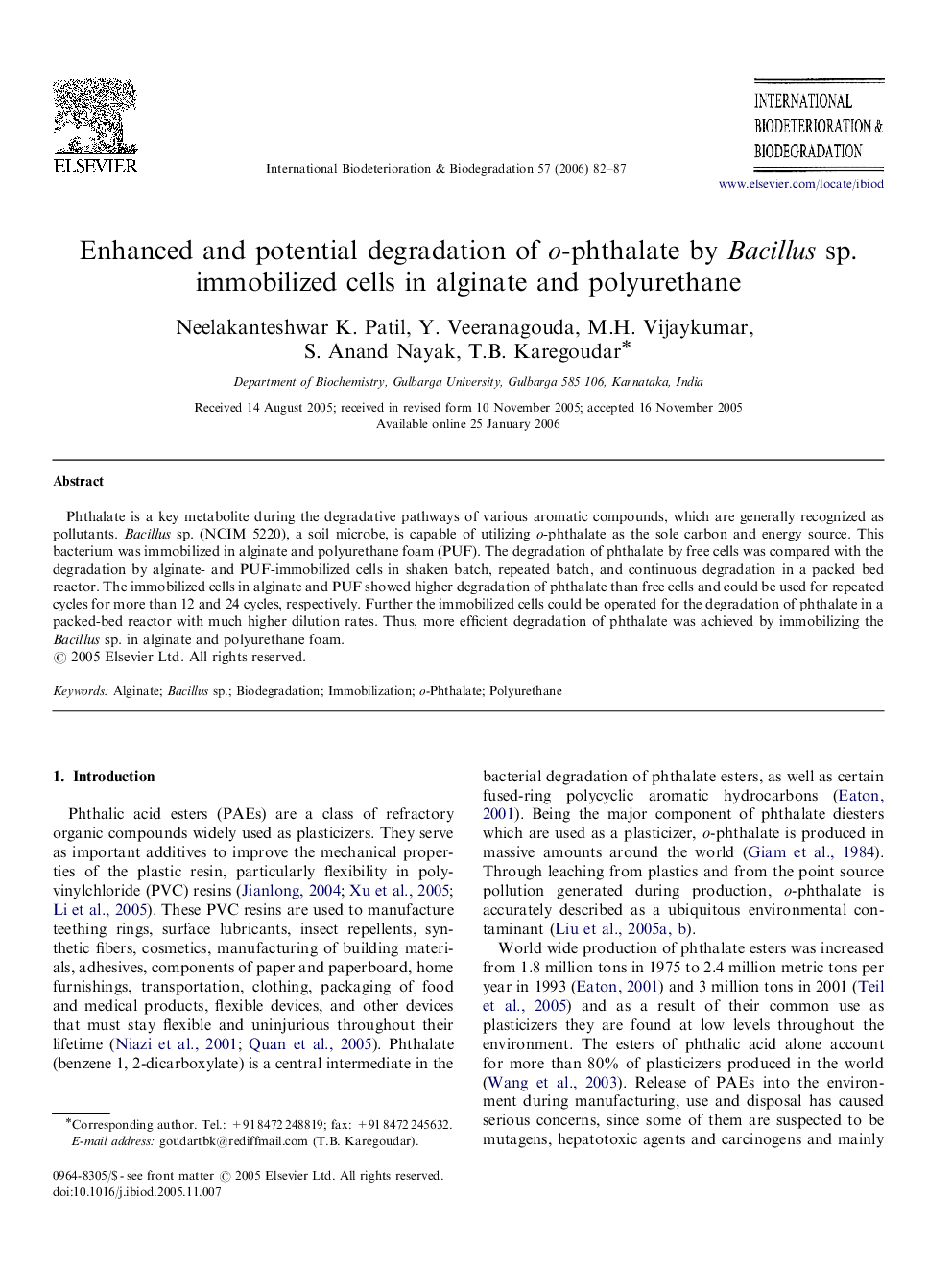| Article ID | Journal | Published Year | Pages | File Type |
|---|---|---|---|---|
| 4365894 | International Biodeterioration & Biodegradation | 2006 | 6 Pages |
Phthalate is a key metabolite during the degradative pathways of various aromatic compounds, which are generally recognized as pollutants. Bacillus sp. (NCIM 5220), a soil microbe, is capable of utilizing o-phthalate as the sole carbon and energy source. This bacterium was immobilized in alginate and polyurethane foam (PUF). The degradation of phthalate by free cells was compared with the degradation by alginate- and PUF-immobilized cells in shaken batch, repeated batch, and continuous degradation in a packed bed reactor. The immobilized cells in alginate and PUF showed higher degradation of phthalate than free cells and could be used for repeated cycles for more than 12 and 24 cycles, respectively. Further the immobilized cells could be operated for the degradation of phthalate in a packed-bed reactor with much higher dilution rates. Thus, more efficient degradation of phthalate was achieved by immobilizing the Bacillus sp. in alginate and polyurethane foam.
